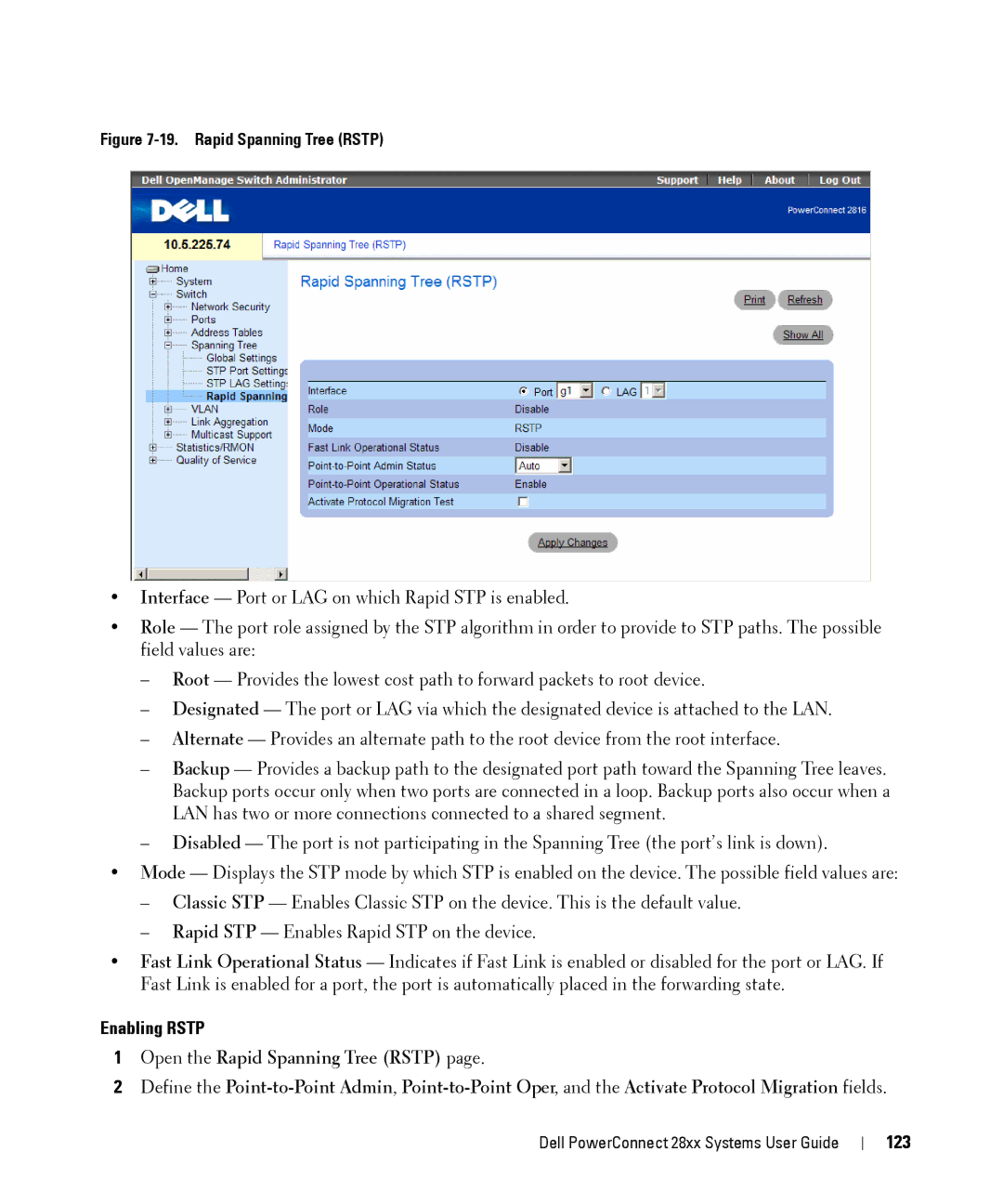
Figure 7-19. Rapid Spanning Tree (RSTP)
•Interface — Port or LAG on which Rapid STP is enabled.
•Role — The port role assigned by the STP algorithm in order to provide to STP paths. The possible field values are:
–Root — Provides the lowest cost path to forward packets to root device.
–Designated — The port or LAG via which the designated device is attached to the LAN.
–Alternate — Provides an alternate path to the root device from the root interface.
–Backup — Provides a backup path to the designated port path toward the Spanning Tree leaves. Backup ports occur only when two ports are connected in a loop. Backup ports also occur when a LAN has two or more connections connected to a shared segment.
–Disabled — The port is not participating in the Spanning Tree (the port’s link is down).
•Mode — Displays the STP mode by which STP is enabled on the device. The possible field values are:
–Classic STP — Enables Classic STP on the device. This is the default value.
–Rapid STP — Enables Rapid STP on the device.
•Fast Link Operational Status — Indicates if Fast Link is enabled or disabled for the port or LAG. If Fast Link is enabled for a port, the port is automatically placed in the forwarding state.
Enabling RSTP
1Open the Rapid Spanning Tree (RSTP) page.
2Define the
